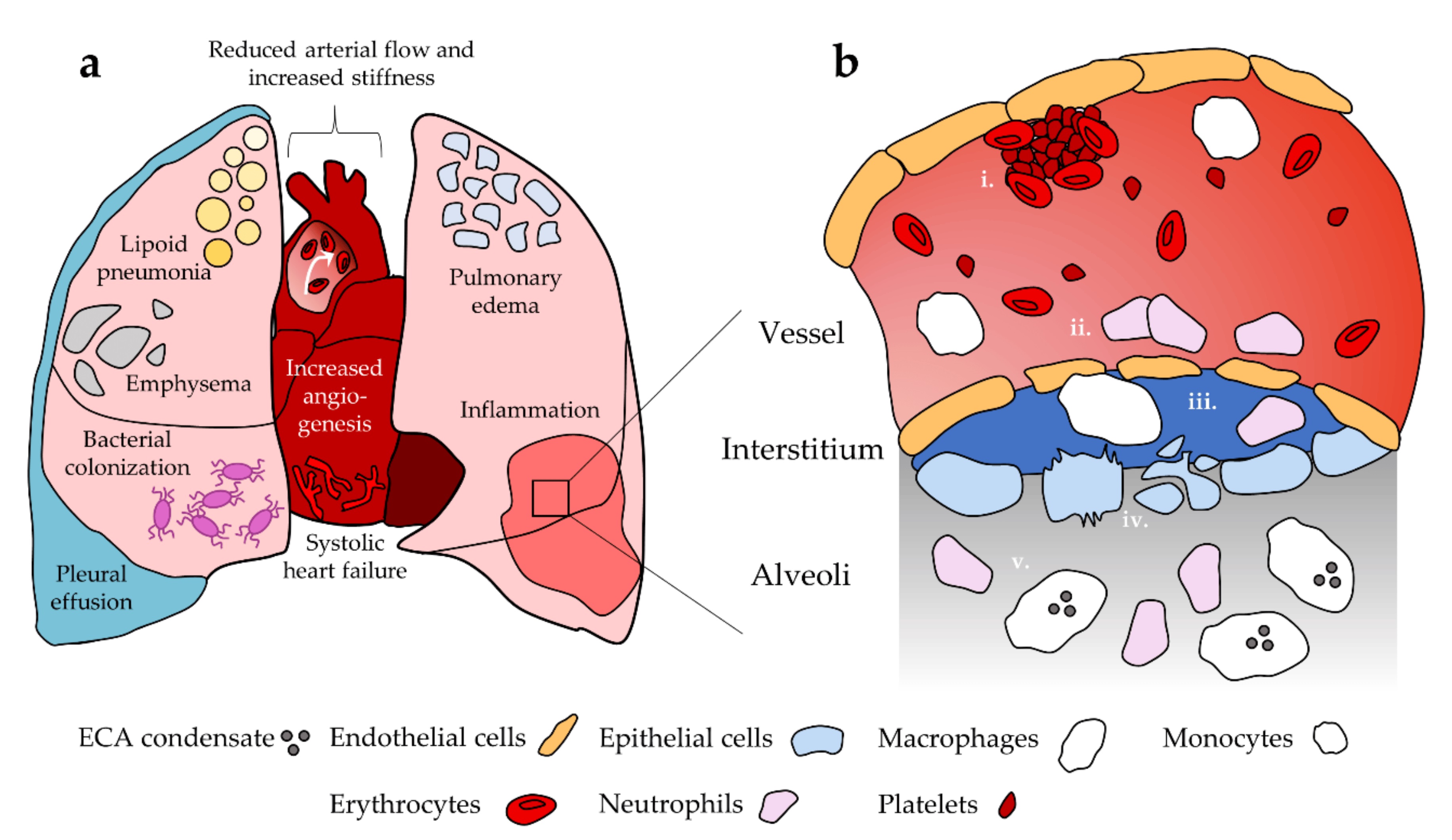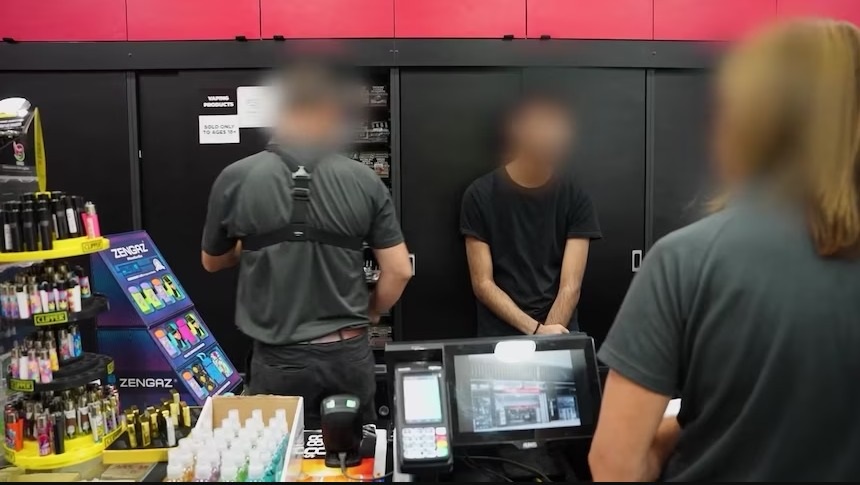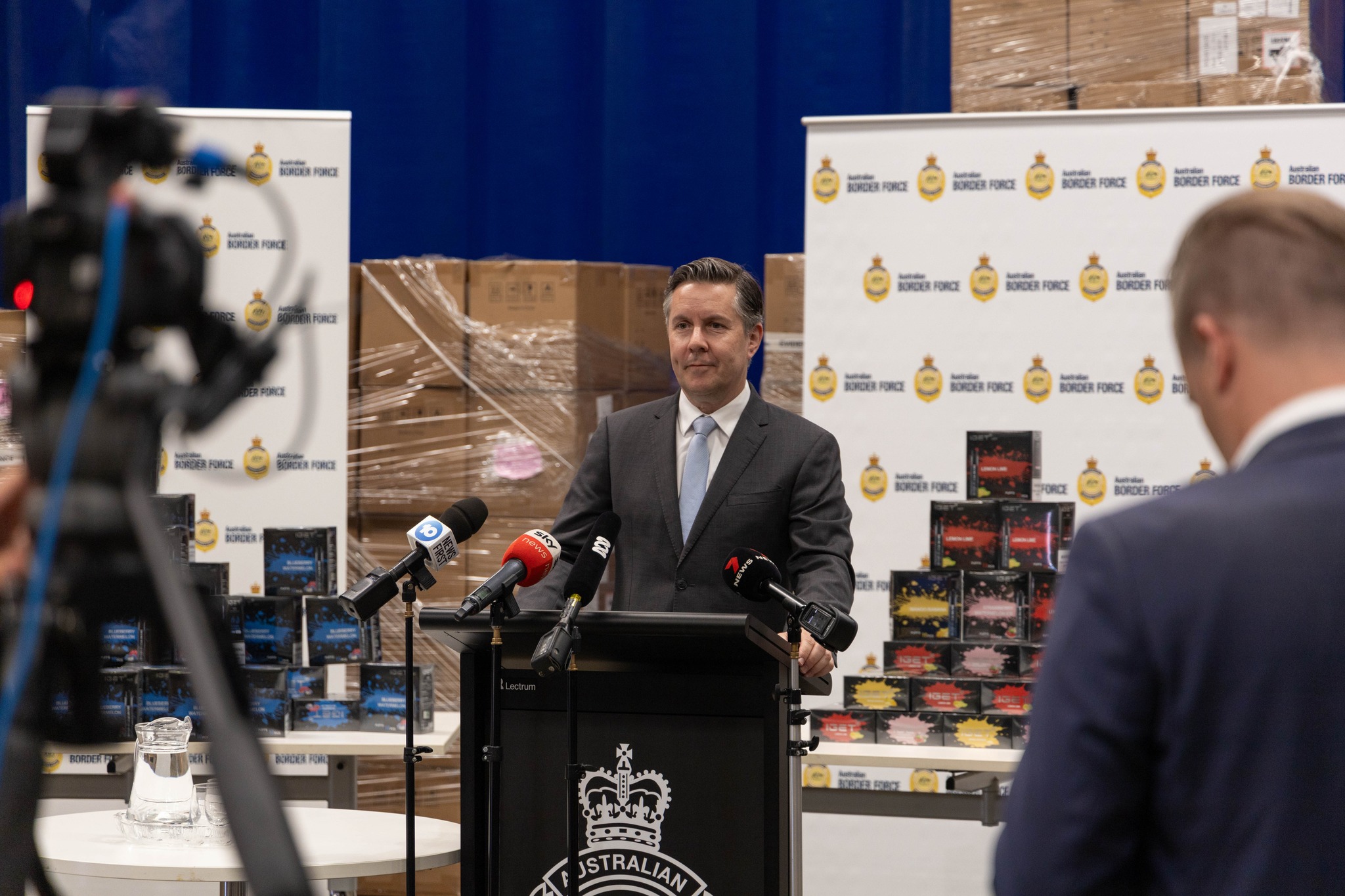Young people at the centre of new NSW vaping campaign - raids across sydney net thousands of illegal products: further reforms to come in 2024 via federal government's reforms
Young People At The Centre Of Powerful New Vaping Campaign

Sixty retailers targeted in major vaping blitz across Sydney
On Tuesday February 6 2024 the government announced retailers across the city of Sydney and south east Sydney have been targeted in a joint operation to crack down on the illegal sale of nicotine e-cigarettes (vapes).
 NSW Health inspectors and NSW Police officers, working with officers from the Therapeutic Goods Administration, conducted 60 raids between 29 January and 2 February 2024.
NSW Health inspectors and NSW Police officers, working with officers from the Therapeutic Goods Administration, conducted 60 raids between 29 January and 2 February 2024.
The most recent raids seized 30,000 nicotine e-cigarettes, 118,000 cigarettes, 45kg of flavoured and loose-leaf tobacco and 284 containers of nicotine pouches worth with an estimated street value of over $1.1 million. This brings the total estimated street value of seized illegal vaping and tobacco products across NSW, since 1 July 2020 to more than $31.6 million.
Vaping products containing nicotine are only available when prescribed by a medical practitioner or nurse practitioner. and can only be legally dispensed from a pharmacy in Australia with a valid prescription.
For all other retailers in NSW, the sale of e-cigarettes or e-liquids containing nicotine is illegal. This also includes online sales. The maximum penalty for illegally selling them is $1,650 per offence, six-months in prison or both, under the Poisons and Therapeutic Goods Act 1966.
Retailers and individuals can also be prosecuted for selling e-cigarette products to minors, with maximum penalties:
- For individuals, up to $11,000 for a first offence, and up to $55,000 for a second or subsequent offence;
- For corporations, up to $55,000 for a first offence, and up to $110,000 for a second or subsequent offence.
Once the vaping reforms are fully implemented later this year, tobacconists, vape shops and convenience stores will no longer be able to lawfully sell any type of vape. It’s important that retailers take action now to minimise financial losses and ensure they comply with the new rules.
Under Commonwealth Therapeutic Goods legislation, the TGA has issued 190 infringement notices totalling $1.71 million to 42 entities to date. A fine for illegal advertising, import or supply is currently, per offence, $3,756 for an individual and $18,780 for a corporation. Court penalties can exceed $10 million and include jail terms. See TGA's Information about infringement notices for more information.
NSW Health launched the ‘Every Vape is a Hit to Your Health’ campaign last week to encourage young people to consider the proven health harms of vaping.
This was in addition to the first meeting of the National Vaping Working Group, co-chaired by NSW Health Secretary, Susan Pearce AM, which is overseeing development and implementation of the national enforcement framework and brings together health and enforcement agencies from across Australia.
NSW Minister for Health Ryan Park said:
"The NSW Government committed $6.8 million over three years in the budget to invest in a crackdown on the sale of illegal vapes and increase support for young people who are addicted to vaping. We are delivering on that commitment.
“Vapes are not a safe alternative to smoking and we are doing everything we can to educate young people on the harms of vaping and to protect them from those same harms.
“More evidence continues to come to light about the dangers associated with vapes. They aren’t innocent flavoured water, they contain harmful chemicals which can also be found in weed killer and antifreeze.
“Officers have been finding some retailers have placed products in hidden rooms behind fake walls and in secret panels and drawers to hide the devices, but we have and will continue to find them.
“If you think a tobacco or e-cigarette retailing law has been broken by a retailer in NSW, you can report this via the NSW Health website.
“NSW Health will continue to work closely with our Federal counterparts and NSW Police to take the action needed to prevent vaping becoming the next public health emergency for generations to come.”
Australian Government steps up to protect our children
Federal Minister for Health, The Hon. Mark Butler stated:
“Vape products are deliberately marketed to our children. We have seen that kids buy vapes from other kids at school which is a significant concern for both current and future health and wellbeing.
“The Australian Government is stamping out ways that anyone can access these harmful products by reforming the regulation of vapes, including removing loopholes in existing laws, and increasing enforcement in cooperation with states and territories.”
“On 1 January 2024, the first stage of our reforms made the importation of single use disposable vapes illegal, except in very limited circumstances.”
“Stronger controls on the importation, manufacture, supply and advertising of vapes will be progressively implemented over 2024.”
“The Therapeutic Goods Administration will continue to work with NSW Health and Australian Border Force to stamp out the illegal importation and supply of vapes under Commonwealth and state and territory law.”
On January 30 the Federal government announced the Australian Border Force (ABF) had stopped more than 13 tonnes of disposable vapes from entering the community after seizing a number of air cargo consignments in Adelaide.
This was the first large-scale seizure in Australia under the new vaping regulation that came into force on Monday 1 January 2024.
ABF officers’ suspicions were initially raised when 14 air cargo consignments – declared as “refillable atomiser” – arrived from a single point of origin.
Following the detection in these consignments, which contained 10 tonnes of disposable vapes, officers undertook rapid investigations, including warrant activity, resulting in the location and seizure of a further three tonnes of disposable vapes.
In total, the 13 tonnes of vapes have an estimated potential street value of more than $4.5 million.
Inquiries into those involved in the illicit importation are continuing.
January 1 2024 marked the commencement of the first stage of the Federal Government’s vaping reforms: the ban on importation of disposable single use vapes.
The Government stated these changes will protect Australians, particularly young people, from the harms of vaping and nicotine dependence, while ensuring those with a legitimate need to access therapeutic vapes can continue to do so, where clinically appropriate.
The latest data, from the Australian Secondary Schools Alcohol and Drug survey shows that about one in eight 12- to 15-year-olds and one in five 16- to 17-year-olds had vaped in the past month.
Approximately 80 per cent of these young people were using disposable vaping devices. Nearly one-third of students tried vaping for the first time when they were aged 15 or 16, while 23 per cent of students reported being 12 years or younger.
From January 1, every doctor and nurse practitioner will be able to prescribe therapeutic vaping products, where clinically appropriate, with the commencement of a new Special Access Scheme pathway.
The Government recognises that health practitioners play an important role in supporting people to quit smoking and vaping.
The Royal Australian College of General Practitioners (RACGP) is undertaking a comprehensive review of the Supporting smoking cessation: A guide for health professionals to ensure it is up-to-date and in line with best practice.
These updates will incorporate guidance on vaping cessation strategies, including provision of support to young people. Draft interim guidance reflecting the changes are now available.
The Government has committed $29.5 million over four years for specialised programs and health service expansions to meet increased demand to support people to quit smoking and vaping arising from the new tobacco and vaping reforms:
- new clinical guidance for health professionals on smoking and vaping cessation, building on the RACGP’s work
- the creation of an online cessation hub that contains information, tools, resources and linkages to direct people to the best support mechanisms to assist them quit smoking and vaping
- the redevelopment of the My Quit Buddy app to provide both smoking and vaping cessation support, and
- expansion of state and territory Quitline services to support equitable access across the country.
In addition, the Quit Centre has been funded until 2025, to develop and deliver training, resources and tools to ensure health professionals are well placed to provide support for smoking and vaping cessation.
For free confidential support to quit smoking or vaping, call the Quitline on 13 78 48. You can also head to Quit Now, to find updated resources to support quitting smoking and vaping.
From 1 March 2024, further changes are expected to commence, including the:
- cessation of the personal importation of vapes
- ban on the importation of non-therapeutic vapes
- requirement for therapeutic vape importers and manufacturers to notify the Therapeutic Goods Administration of their product’s compliance with the relevant product standards
- requirement for importers to obtain a licence and permit from the Australian Government’s Office of Drug Control before the products are imported.
During 2024, product standards for therapeutic vapes will also be strengthened, including to limit flavours, reduce permissible nicotine concentrations and require pharmaceutical packaging. A transition period will be allowed for businesses to comply with the new requirements.
The Government will introduce legislation in 2024 to prevent domestic manufacture, advertisement, supply and commercial possession of non-therapeutic and disposable single use vapes to ensure comprehensive controls on vapes across all levels of the supply chain.
Federal Health Minister, The Hon Mark Butler, said:
“Vaping is creating a whole new generation of nicotine dependency in our community, especially amongst young Australians.
“The Albanese Government is taking world leading action to stamp out vaping – to protect a new generation of kids form getting hooked on nicotine.
“If you vape, this year make it your resolution to quit.
“This is just the first chapter of the governments vaping reform, the supply of vapes coming into Australia will gradually dry up over the course of 2024, for this reason we strongly encourage all recreational vapers to begin their journey of cessation.”
Taking on Big Tobacco to protect our kids from vapes
Minister Butler's opinion piece, first published in the Advertiser on 7 February 2024.
As a father of three, I know too well that sending your kids off for the first day of a new school year is always an exciting yet nervous time.
Do they have everything they need? What teacher will they have?
Will they find a good group of friends?
In recent years, another very serious issue has become an increasing concern for many parents - how do I stop my child from being lured into vaping?
Data shows that about one in 6 high school students, and one in 4 young Australians aged between 18 and 24 are vaping.
Vapes have become the No.1 behavioural issue in many schools.
We need to make sure that when our kids start the new school year, they don't pick up vaping alongside new friends and new experiences.
Vapes have morphed very quickly to become a widespread, highly addictive product, and one being deliberately marketed at our kids.
You've probably seen the vapes I'm talking about – brightly coloured with rainbows or unicorns on them, and with flavours like bubblegum, grape or cherry. Vape shops are deliberately setting up down the road from schools – it's an industry targeting their product to kids.
We are taking on Big Tobacco so they can't succeed in getting a new generation addicted to nicotine.
The truth is the only groups who want to regulate and sell vaping products are those who profit from kids getting hooked on nicotine – Big Tobacco and tobacco retailers.
That's why on January 1, the Albanese Government brought in the first stage of our world-leading reforms to protect young Australians.
These disposable, single-use vapes can no longer be imported. Stopping these vapes from coming into the country is the first step in turning the tide on vaping in Australia.
There will be more changes in March. Flavours will be restricted, nicotine concentration will be reduced and pharmaceutical packaging will be used, to make vapes less appealing to young people.
We'll be introducing laws to effectively make it illegal to make, advertise or sell single-use disposable or non-therapeutic vapes anywhere in Australia. Reducing the widespread availability and accessibility of vaping products will be critical to the success of the reforms.
We want to ensure that vaping products are only available from pharmacies for therapeutic purposes.
It is important to know that under these reforms young people and other users of these products will not be punished for possessing a vape. The focus will be to stop the commercial supply and sale outside of therapeutic settings to protect young people.
_______________________________________________________________________
Federal Health Minister, The Hon Mark Butler, on January 30 2024;
The Australian Border Force has stopped more than 13 tonnes of disposable vapes from entering the community after seizing a number of air shipments in Adelaide.
This is the first large-scale seizure in Australia under the new vaping regulation.
Before we changed the loopholes, millions and millions of disposable vapes were able to flood into Australia and into the hands of our children.

Photo © Commonwealth of Australia | Department of Health and Aged Care
Previously:
- Next Steps On Vaping Reforms Announced By Australian Government - Issue 608
- NSW Government's Vaping Roundtable Hears Problems Plus Potential Solutions To Help Next Generation Not Become Smoking Fatality Statistics - Issue 606
- New ACYP Report Confirms Lack Of Awareness Among Young People Regarding Detrimental Effects Of Vaping - Issue 602
- Crackdown On Illegal Vape Sellers In NSW: Federal Government/TGA Moves To End Retail Vape Sales In Australia - Issue 600
- Residents Call For Immediate Ban On E-Cigarette Shops In Areas Where Teenagers 'Hang Out' - Issue 589
- TGA Consultation On Nicotine Vaping Product Regulatory Reforms: Minister Butler Launches 'Reignite Tobacco Reforms' - Issue 565